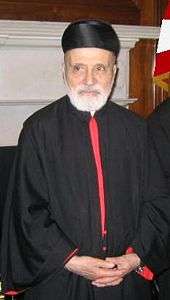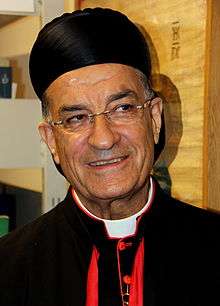Lebanese diaspora
| Total population | |
|---|---|
| From 8[1][2] to possibly 14 million[3][4] | |
| Languages | |
| Brazilian Portuguese, Spanish, French, English, Lebanese Arabic, Armenian | |
| Religion | |
|
Christianity, mainly Maronite, as well as Eastern Orthodox, Melkite, Roman Catholic, Protestant, and non-native to Lebanon like Armenian Orthodox, Armenian Catholic, Syriac Orthodox, Syriac Catholic. Muslim, mainly Shia, Sunni, in addition to Alawite, Lebanese Jews |
| Part of a series of articles on |
| Lebanese people |
|---|
 |
|
Lebanese people |
|
Communities Native communities outside of Lebanon:
Europe Overseas
Middle East |
|
Language |
|
|
Lebanese diaspora refers to Lebanese migrants and their descendants who, whether by choice or coercion, emigrated from Lebanon and now reside in other countries. There are more Lebanese living outside of Lebanon (8-14 million),[5] than within (4 million). The majority of the diaspora population consists of Lebanese Christians and Lebanese Muslims; however, there are some who are Druze, or Jewish. They trace their origin to several waves of Christian emigration, starting with the exodus that followed the 1860 Lebanon conflict in Ottoman Syria.
Under the current Lebanese nationality law, diaspora Lebanese do not have an automatic right of return to Lebanon. Due to varying degrees of assimilation and high degree of interethnic marriages in the Lebanese diaspora communities, regardless of religious affiliation; most diaspora Lebanese have not passed on the Arabic language to their children, while still maintaining a Lebanese ethnic identity.
Although there are no reliable figures, the diaspora is estimated to be around 14 million people, far more than the internal population of Lebanon of around 4 million.[3][6] According to other estimates the number of Lebanese living outside the country is thought to at the very least double the number of citizens living inside,[1] which means at least 8 million people. Of the diaspora, 1.2 million are Lebanese citizens.[7]
History
The Lebanese diaspora, while historically trade-related, has more recently been linked to the Lebanese Civil War, with many Lebanese emigrating to Western countries. Because of the economic opportunities, many Lebanese have also worked in the Arab World, most notably Arab states of the Persian Gulf like Saudi Arabia and Kuwait. Currently around 60% of Lebanese citizens resident in Lebanon are Muslim and around 40% are Christian.[8]
The Americas have long been a destination for Lebanese migration, with Lebanese arriving in some countries at least as early as the nineteenth century. The largest concentration of Lebanese outside the Middle East is in Brazil, which has, according to some sources, at least 6 million Brazilians of Lebanese ancestry, making Brazil's population of Lebanese more than twice that of the entire population of Lebanon. The population of Brazil of either full or partial Lebanese descent is estimated at 7 [9] million people by Arab-Brazilian organizations. According to a research conducted by IBGE in 2008, covering only the states of Amazonas, Paraíba, São Paulo, Rio Grande do Sul, Mato Grosso and Distrito Federal, 0.9% of white Brazilian respondents said they had family origins in the Middle East [10]
There are also other large Lebanese communities in Latin American countries, namely Argentina, Mexico, Colombia, Ecuador, Venezuela, and Dominican Republic. Many Lebanese have also been settled for quite some time in the United States, Canada, Australia and in the European Union member states. There are also sizable populations in francophone West Africa, particularly Ivory Coast and Ghana.
Lebanese abroad are not presently permitted the right to vote in Lebanese elections. A law passed in late 2008 gives expatriates the right to vote in elections in 2013.[11]
Business networks and economic impacts
Many Lebanese entrepreneurs and business people worldwide have proved very successful, in all kinds of sectors and contexts. Therefore, Lebanese abroad are considered "rich, educated and influential."[12] Remittances from Lebanese abroad to family members within the country were estimated at $8.9 billion in 2014 and accounted for 18% of the country's economy.[13] Though, there remains a great untapped potential for further collaboration and cooperation between the diaspora and the Lebanese in their home-country. Foreign Direct Investment is indeed below 7% of GDP while almost half the Lebanese population is enrolled in tertiary education.
Throughout their history, the Lebanese diaspora used their Lebanese identity to create strong networks to help each other out and many used them to develop a productive and profitable activity. Over the course of time, immigration has indeed yielded Lebanese "commercial networks" throughout the world.[14]
Lebanese populations in the diaspora
The list below contains approximate figures for people of Lebanese descent by country of residence, largely taken from the iLoubnan diaspora map.[15] Additional reliable cites have been provided where possible. Additional estimates have been included where they can be cited; where applicable, these are used in place of the iLoubnan figures.
Note: An important percentage of Arabs in Argentina, Chile, Brazil, Colombia, Mexico, Venezuela, Bulgaria, Romania, Italy, Portugal and Spain are of Lebanese ancestry. They are denoted ** for this purpose.
Notable persons of Lebanese descent
|
Top row (left to right) Some of the figures are of Lebanese Descent, while others are Lebanese Citizens John Maron • Charbel Makhluf • Estephan El Douaihy • Elias Peter Hoayek • Youssef Bey Karam • Former Lebanese President Camille Chamoun • Fairuz • Khalil Gibran • Former Lebanese President Bachir Gemayel • Carlos Slim • Sabah • Carlos Ghosn • Elie Saab • Charles Elachi • John Abizaid • John Abizaid • Elissa • Etienne Saqr • Donna Shalala • Ray LaHood • Michel Temer • U.S. Presidency Candidate Ralph Nader • Miss USA 2010 Rima Fakih • Amal Clooney • Nasrallah Boutros Sfeir • Bechara Boutros al-Rahi • Lebanese President Michel Suleiman |
Famous scientists of Lebanese descent include: Peter Medawar (Nobel Prize in Physiology and Medicine), Elias Corey (Nobel Prize in Chemistry), Michael Atiyah (Fields Medalist, Mathematics).
Prominent members of the Lebanese diaspora include Presidents and Vice-Presidents, e.g. Michel Temer (Brazil), Julio Teodoro Salem, Abdalá Bucaram, Alberto Dahik, Jamil Mahuad (all in Ecuador), Jacobo Majluta Azar (Dominican Republic), Julio Cesar Turbay (Colombia) and Alberto Abdala (Uruguay). Other famous politicians include Philip Habib US Politician and Peace Envoy, George J. Mitchell US Politician and Peace Envoy, Ralph Nader, 2000, 2004 and 2008 US presidential candidate, Edward Seaga Prime Minister of Jamaica, Sara El-Amine US Political activist and grassroots political organizer.
Very famous businessmen of Lebanese descent include Carlos Slim Helú, Carlos Ghosn and Nicolas Hayek and famous names in entertainment like Danny Thomas, Salma Hayek, Shakira, Tony Shalhoub, Paul Anka, Mika and sportsmen like Doug Flutie, and Rony Seikaly.
See also
- Arab diaspora
- Constitution of Lebanon
- Driving licence in Lebanon
- Foreign relations of Lebanon
- History of Lebanon
- Lebanese identity card
- Lebanese passport
- LERC, an organization aimed at bringing together Lebanese youth with Lebanese youth living abroad.
- List of Lebanese people
- Little Syria, Manhattan
- Politics of Lebanon
- Vehicle registration plates of Lebanon
- Visa policy of Lebanon
- Visa requirements for Lebanese citizens
Notes
- ↑ 26% of 1.9m Americans of Arab descent
- ↑ 26% of 3,665,789 Americans of Arab descent
- ↑ Includes Cuba, Guadalupe & Haiti
- ↑ Belize, Bolivia, Chile, Costa Rica, El Salvador, Guatemala, Honduras, Nicaragua, Panama, Paraguay, Peru
- ↑ Excludes Saudi Arabia & Kuwait, includes Iraq & Jordan
- ↑ Belgium, Cyprus, Greece, Italy, Monaco, Switzerland, United Kingdom
- ↑ Burkina Faso, Gambia, Ghana, Liberia, Nigeria & Sierra Leone
- ↑ Egypt, Libya & rest of North Africa
- ↑ Iran & Philippines
External links
- The Lebanese Demographic Reality Lebanese Information Center, reviewed by Statistics Lebanon. 14 January 2013.
- KUSUMO, Fitra Ismu, "ISLAM EN AMERICA LATINA Tomo I: La expansión del Islam y su llegada a América Latina (Spanish Edition)"
- KUSUMO, Fitra Ismu, "ISLAM EN AMÉRICA LATINA Tomo II: Migración Árabe a América Latina y el caso de México (Spanish Edition)"
- KUSUMO, Fitra Ismu, "ISLAM EN AMÉRICA LATINA Tomo III: El Islam hoy desde América Latina (Spanish Edition)"
References
- 1 2 Bassil promises to ease citizenship for expatriates
- ↑
- 1 2 "Country Profile: Lebanon". FCO. 3 April 2007.
- ↑
- ↑
- 1 2 Lebanese Living in UAE Fear Deportation Al-Monitor, accessed December 2, 2013
- ↑ "Petition for expatriate voting officially launched". The Daily Star. 14 July 2012.
- ↑ "Study shows stable Christian population in Lebanon". The Daily Star. 7 February 2013.
- ↑
- 1 2 IBGE. IBGE: Características Étnico-Raciais da População.
- ↑ "Lebanon approves new election law". BBC News. 30 September 2008.
- ↑ "The invisible occupation of Lebanon". The Christian Science Monitor. 18 May 2005.
- ↑ "IMF lowers Lebanon growth forecast to sluggish 2 percent". The Daily Star. 22 April 2013.
- ↑ "Background Note: Lebanon". US Department of State. 1 December 2011.
- 1 2 3 4 5 6 7 8 9 10 11 12 13 14 15 16 17 18 19 20 21 "Geographical Distribution of the Lebanese Diaspora". The Identity Chef.
- ↑ Brazilian Ministry of Foreign Affaires
- ↑ "Sleiman meets Brazilian counterpart, Lebanese community". The Daily Star. 23 April 2010.
- 1 2 "Argentinian President's visit to the Lebanese Parliament". The Lebanese Parliament. 7 June 2007. Archived from the original on 2007-06-07.
- ↑ "Demographics". Arab American Institute.
- ↑ "Demographics" (PDF). Arab American Institute.
- ↑ historico.notitarde.com/1999/08/09/memoria/memoria6.html "In Venezuela currently reside five hundred thousand Lebanese citizens or of Lebanese ancestry..." (SPANISH)
- ↑ "Australian Population: Ethnic Origins". Monash University. 1999.
- ↑ "Lebanese in Australia: Facts & Figures". General Consulate of Lebanon in Melbourne.
- ↑ "Lebanon country brief". Department of Foreign Affairs and Trade. March 2013.
- ↑ "The biggest enchilada". The Sunday Telegraph. 8 July 2007.
- ↑ Arab, Lebanese in Mexico
- ↑ Statistics Canada (2011). "2011 National Household Survey: Data tables".
- ↑ "Canada and Lebanon, a special tie". CBC News}. 1 August 2006.
- ↑ "Colombia awakens to the Arab world". Brazil-Arab News Agency. 21 July 2009.
- ↑ Arab, Lebanese in Saudi Arabia
- ↑ Arab, Lebanese in Syria
- ↑ "Painting a Picture of Exile". New York Times. 27 November 2009.
- ↑ "The Lebanese in the World: An Entrepreneurial Minority". RMIT University. February 2004.
- ↑ http://francelebanon.blogspot.com/2008/03/lebanese-cultural-shocks-when-moving-to.html
- ↑ Arab, Lebanese in United Arab Emirates
- ↑ "INTERVIEW - L'ambassadeur Jorge Jure (Khoury) raconte son pays et ses propres origines" (PDF). Embassy of Uruguay (Lebanon) (in French). 19 February 2008.
- ↑ http://www.dailystar.com.lb/Sports/Football/2012/Apr-14/170193-what-is-it-about-lebanon-and-german-football.ashx#axzz2lLHf4Kh8
- ↑ "Lebanese Émigré Enclaves in Africa Await Presidential Visit". Al-Akhbar. 6 Feb 2013.
- ↑ "Lebanese business makes up 35 percent of Ivory Coast economy". The Daily Star. 23 May 2011.
- ↑ http://www.alraimedia.com/Articles.aspx?id=412118
- ↑ "The Global Financial Crisis: Impact on Lebanese Expatriates in the Gulf" (PDF). LERC. December 2009.
- ↑ Arab, Lebanese in Kuwait
- ↑ "Lebanese Immigrants Boost West African Commerce". Voice of America. 1 November 2009.
- ↑ "Suleiman Tells Lebanese Expats in Senegal that he Rejects Sectarian Vote Law". Naharnet. 14 March 2013.
- ↑ "Qatar´s population by nationality". bq magazine. 7 December 2014.
- ↑ Arab, Lebanese in Qatar
- ↑ Arab, Lebanese in South Africa
- ↑ "The Struggle Of The Christian Lebanese For Land Ownership In South Africa". The Marionite Research Institute.
- ↑ Arab, Lebanese in South Africa
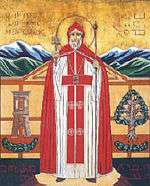


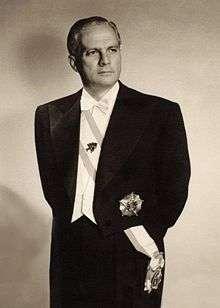


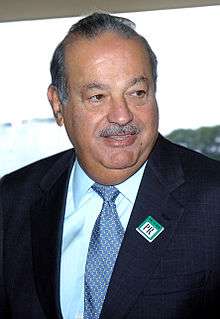






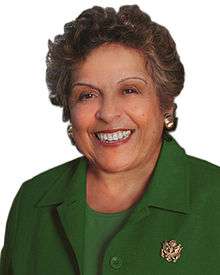
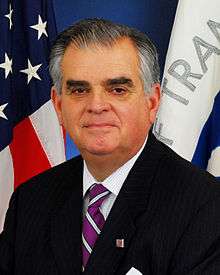


_(cropped).jpg)
